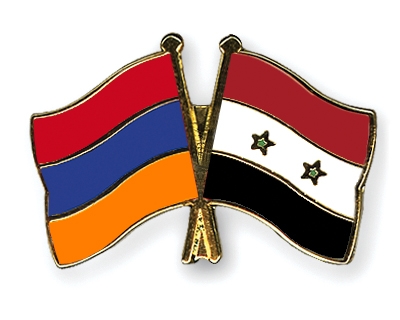By Levon Baronian
The ongoing turmoil in Syria, particularly in Aleppo and its surrounding areas, has once again cast a shadow over the region’s Armenian communities. For Armenians, this crisis is not just a distant geopolitical event but a painful reminder of historical wounds, compounded by the negligence and misplaced priorities of Armenia’s current leadership. It is imperative to critically examine the roles of Turkey, the so-called Syrian “rebels,” and the government of Nikol Pashinyan, whose lack of leadership has left, not just Artsakh’s and Armenia’s populations but also Diaspora Armenians, such as Syrian-Armenians, increasingly vulnerable.
Turkey’s Role: A Perpetrator Disguised as a Regional Actor
Turkey, through its long-standing support for Syrian rebel factions, has been a primary architect of chaos in northern Syria. These factions, often acting as proxies for Ankara, have displaced countless civilians and created instability that directly threatens Armenian communities in Aleppo and beyond. For Turkey, this is not just opportunism but a continuation of a policy of erasure that began with the Armenian Genocide. The suffering of Syrian-Armenians today echoes the atrocities of 1915, as Turkey’s actions undermine their security, livelihoods, and heritage.
The international community’s failure to confront Turkey’s destabilizing role only emboldens it further. By positioning itself as a power broker, Turkey avoids accountability while perpetuating violence in the region. Armenians worldwide should raise their voices against these policies, which systematically undermine regional stability and the safety of Armenian communities.
Armenia’s Government: A Passive Spectator
The Armenian government under Nikol Pashinyan has done little to address the plight of Syrian-Armenians. Pashinyan’s administration, preoccupied with appeasing international actors and securing its own political survival, has failed to implement effective policies to assist Armenian communities in Syria or to advocate for their safety on the global stage.
Armenia’s Foreign Ministry recently admitted there was “no opportunity” to evacuate Syrian-Armenians due to the dire situation on the ground. This admission underscores the government’s lack of preparedness and foresight in safeguarding the interests of Armenian diasporan communities. For a government that has repeatedly boasted of its democratic credentials, this abdication of responsibility toward a vulnerable diaspora is inexcusable.
The inaction is further exacerbated by domestic neglect. Syrian-Armenian children, many of whom have sought refuge in Armenia, face bureaucratic hurdles to enroll in schools. This failure to provide even basic services to those who have fled the horrors of war highlights the government’s inability to prioritize the needs of its people, both at home and abroad.
Historical Parallels and Lessons from Artsakh
The crisis in Syria bears troubling similarities to the situation in Nagorno-Karabakh (Artsakh). Just as Armenia’s leadership abandoned the people of Artsakh to Azerbaijan’s aggression, it now appears content to turn a blind eye to the suffering of Armenians in Syria. In both cases, the lack of a cohesive national strategy and the government’s submissive foreign policy have emboldened adversaries like Turkey and Azerbaijan, whose long-term goals include the erasure of Armenian identity from these regions.
The Armenian Revolutionary Federation’s (ARF) recent statement on Aleppo emphasizes the need for global solidarity and concrete action to protect Armenian communities. The ARF has called for emergency assistance and heightened international advocacy, a call that Pashinyan’s government has yet to heed. This neglect not only weakens Armenia’s standing but also erodes the trust of diaspora Armenians in their homeland’s ability to represent their interests.
Recent Developments: Assad’s Fall and Rising Instability
The recent upheaval in Syria, culminating in the fall of President Bashar al-Assad’s regime, has intensified the precarious situation of Armenian communities in the region. The swift offensive by rebel forces, leading to the capture of key cities such as Aleppo, Homs, and ultimately Damascus, has created a power vacuum that emboldens hostile actors, notably Turkey. This development poses significant threats to Armenian populations, particularly in Aleppo, a city with a substantial Armenian heritage.
Turkey’s historical antagonism toward Armenians is well-documented, and its current actions in Syria raise alarms. Following Assad’s ousting, Israel seized a buffer zone in Syria’s Golan Heights, citing security concerns over potential threats from Iranian proxies and extremist groups. These developments further complicate the security landscape, with Armenian communities caught in the crossfire of competing regional interests.
The fall of Assad’s regime has also led to increased military activities by Israel, including airstrikes targeting sites in Damascus and southern Syria. These operations aim to prevent strategic weapons from falling into the hands of extremist groups, further endangering Armenian communities already struggling to survive in a hostile environment.
A Call for Unity and Action
There is no expectation that the current treacherous, anti-Armenian leadership of Armenia will rise to the occasion. It is clear that they have chosen to abandon both Artsakh and the diaspora to their fate. As such, we, the Armenian people of the world, must organically come together to make up for this abdication of responsibility. The preservation and survival of our nation and communities fall to us, the global Armenian collective.
This requires urgent diplomatic and grassroots efforts to highlight Turkey’s destabilizing actions in Syria and increased support for Syrian-Armenian refugees. We must organize to provide streamlined access to education, housing, and integration programs for Syrian-Armenians in need, regardless of where they have sought refuge. Additionally, our community organizations and diaspora networks must take the lead in creating a united and coherent advocacy campaign that counters Turkey’s aggression and champions the rights and safety of Armenians worldwide.
Turkey’s unchecked aggression in northern Syria is not just a threat to the region—it is a warning to Armenians everywhere of the consequences of disunity and passivity. The responsibility to act lies with each of us, as history shows that our collective action today is the only way to safeguard the future of our people tomorrow. For the sake of Syrian-Armenians and the broader Armenian nation, we must confront these challenges with courage, solidarity, and an unwavering commitment to our national survival.




